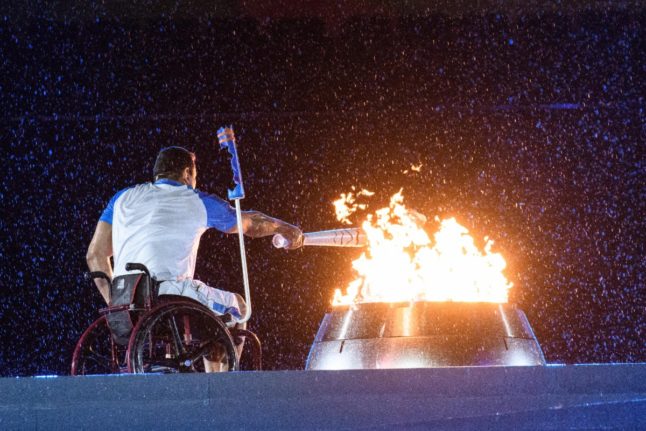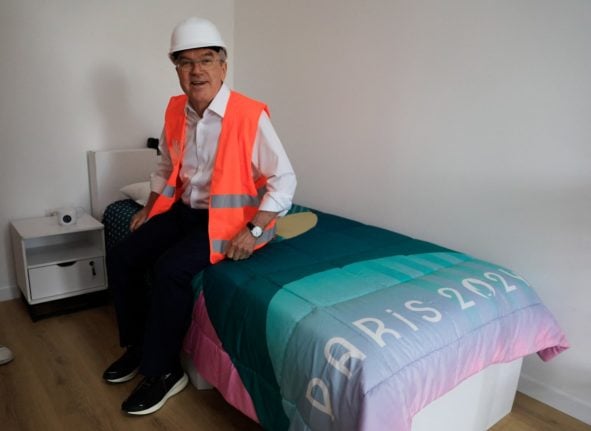Paris 2024 Olympic and Paralympic organisers have unveiled the route for the Paralympic Torch.
Partant d’Angleterre avec pour ligne d’arrivée la Place de la Concorde lors de la cérémonie d’ouverture des Jeux Paralympiques 🇬🇧🇫🇷
Passant sous la Manche et traversant + de 50 villes ✨
Porté par 1000 éclaireurs 🏃VOICI LE PARCOURS DU RELAIS DE LA FLAMME PARALYMPIQUE 🔥 pic.twitter.com/MFM0OqsJ4W
— Paris 2024 (@Paris2024) November 10, 2023
The torch will set off from Stoke Mandeville in the UK, then it will be symbolically passed from 24 British athletes to 24 French ones in the middle of the Channel Tunnel, according to Paralympic.org.
Once in France, 11 other flames will be lit, for a total of 12 different Paralympic torches in reference to the 12 days of the Games.
The torches will criss-cross France, handed off between 1,000 torchbearers while passing through 50 different towns and cities between August 25th to 28th.
Locations were selected on the basis of their commitment to inclusion through sport, or for their unique cultural heritage and symbolism, such as Limoges Cathedral, Strasbourg and the European Parliament.
According to AFP, the short time period – just four days for the entire relay – is intended to ensure “maximum visibility”, compared to the longer Olympic relay which lasts 80 days.
The main flame, coming from England, will reach the Paris region via Arras, Amiens and Chambly.
As the torches approach the capital, they will pass through several suburbs, including Seine-Saint-Denis where the Games will be hosted, before arriving in Paris.
Once in Paris on August 28th, the torch will make its way past several emblematic sites, including Pigalle, République, Nation, the Simone de Beauvoir footbridge, the National Institute of Sport, Expertise, and Performance (INSEP), Invalides and the Bois de Boulogne.
The relay will conclude at Place de la Concorde, where it will light the Paralympic cauldron at the opening ceremony.
“The Paralympic Torch relay promises to be spectacular,” Tony Estanguet, President of the Paris 2024 Organising Committee, said at a press conference on Friday.
“It will go through every French region (…) It promises to be quite magical because there will be coastal cities, cities in the mountains, and rural villages all celebrating the Paralympic Games,” Estanguet said.
The Paralympic Games will run from Wednesday, August 28th to Sunday, September 8th.
READ MORE: Hotels, tickets and scams: What to know about visiting Paris for the 2024 Olympics
Why is the relay starting in the UK?
Stoke Mandeville is considered by many to be the birthplace of Paralympic sport.
Sir Ludwig Guttmann, a German-born Jewish doctor who fled Nazi Germany, first organised the ‘Stoke Mandeville Games’ as an event for disabled war veterans. He saw sport as therapeutic for those recovering from injuries, particularly spinal cord injury.
Eventually, it evolved into the Paralympic Games that we know today.



 Please whitelist us to continue reading.
Please whitelist us to continue reading.
Member comments